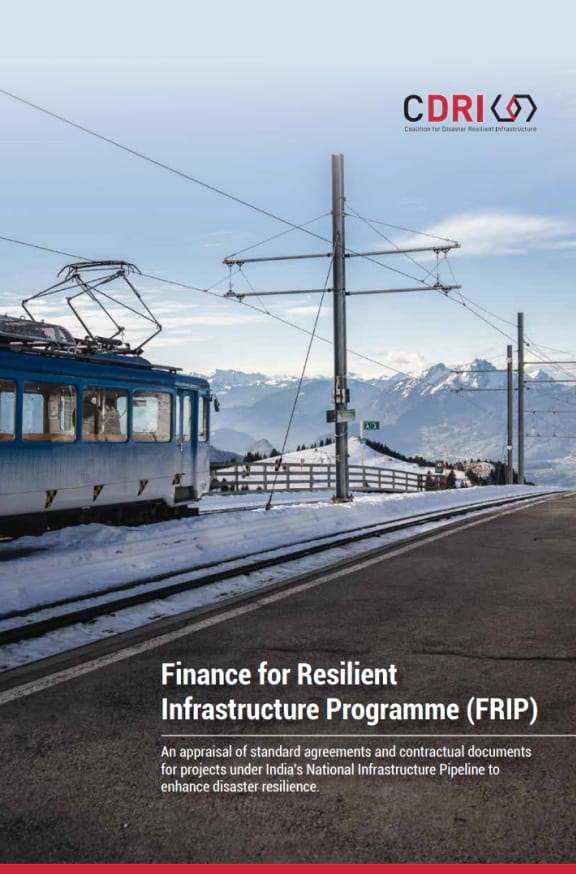The NIP study under CDRI’s Finance for Resilient Infrastructure Programme (FRIP), in collaboration with India’s Ministry of Finance and key line ministries, aims to integrate disaster and climate resilience into infrastructure projects under the National Infrastructure Pipeline (NIP).
With India facing an estimated US$31.59 billion in annual infrastructure losses, FRIP focuses on cost-benefit analysis (CBA) of road, power, and rail projects, appraising standard contracts and developing a resilience toolkit. The programme includes a CBA tool to evaluate resilience investments, identify cost savings, and guide decision-making. It also reviews model concession agreements and procurement documents to address resilience gaps, such as risk-sharing and force majeure clauses.
The toolkit provides checklists, guidance for ministries and bidders, and supports resilient project planning, evaluation, and funding. FRIP ultimately aims to reduce losses, strengthen infrastructure, and promote disaster-resilient investment practices across India.
Key points
- India faces $31.59B annual infrastructure loss from disasters.
- FRIP integrates resilience into the National Infrastructure Pipeline project planning.
- Cost-benefit analysis tool supports resilient infrastructure investment decisions.
- Standard contracts reviewed to embed disaster resilience and risk-sharing.
- Toolkit guides ministries, bidders on resilience in the project lifecycle.
- Resilience measures improve funding eligibility and reduce recovery costs.




